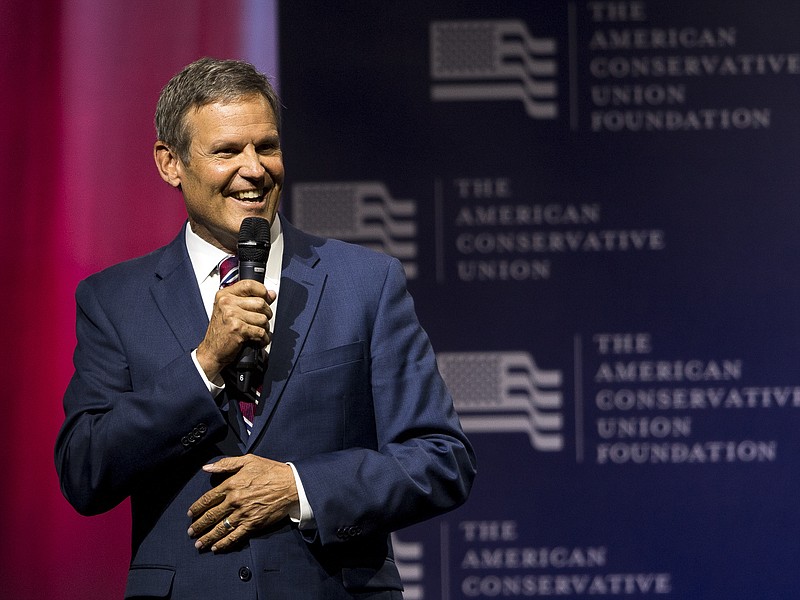It is refreshing to see that Tennessee Gov.-elect Bill Lee wants to lead a "complete overhaul" of the state's open records act to expand access to public documents and meetings.
The issue is so important to him he made it one of the nine priorities on his transition website.
We believe he will find significant pushback in Nashville to various aspects of more open government, but we urge him to resist that pressure and go with his instinct to make government more accessible, more transparent and more understandable to the residents he was elected to govern.
A "government of the people, by the people, for the people," though words spoken by President Abraham Lincoln in the Gettysburg Address in 1863, is surely what the Founding Fathers had in mind for the young country more than 80 years earlier. They did not envision vast bureaucracies, shadow governments and government by pen and executive order. After all, they represented the people like them - the common people - and believed a federal government should be answerable to those it serves.
Earlier this year, the comptroller of the Treasury's Office of Open Records Counsel revealed there were 563 exemptions to the state's Open Records Act.
Similarly, in May, the Tennessee Coalition for Open Government released a report on a study to determine if the legislature's new requirement of written public record policies was being followed and, in fact, making it easier for residents to obtain copies of public records.
The results of the report showed that the policies of 15 percent of the counties, cities and school board districts contacted could not be reviewed because the government entity did not respond, declined to mail or email a copy of the policy, or said they did not have one.
But the report showed more.
It also revealed that 84 percent of the 259 policies obtained required the person making the request to provide identification proving Tennessee residency.
Why? What difference does the state of residency have to do with a request for a public record? Public is public, right?
Only five of Tennessee's 95 counties specified in their public records policies that no proof of residency was required. One entity, on the other hand, required photo identification and a "valid unexpired Tennessee voter registration card with a street address."
If most people are like us and are regular voters, they don't carry their voter registration card because it's never requested at the polls.
In the state law that prompted the survey, the government entities' written policy on requests for public records is to include the name, title and contact information for the person in charge of coordinating the requests. State law also requires entities using email to transact business to accept public records requests through email.
Though most of the government entities listed a contact, fewer than half included an email address where that contact could be made.
Fees for public records, and the possibility of fee waivers, also varied widely through the various entities surveyed. Though a cost is understandable in requests for reams of documents and for the time of someone to search for them, fees required for a few pages and for requests that take far less time only serve to deter the public from asking for them.
The same varied policy was true for making cellphone copies of public records. Only 5 percent of cities and counties - and no school systems at the time - allowed the use of what is essentially a faster way of recording information with a pencil and paper.
We hope Lee, through administrative examination, and/or through legislation, will overhaul those type of policies that prevent the public from getting information they should be able to easily obtain.
"Tennessee taxpayers deserve a transparent and open government," Lee says on his transition website.
Beyond the overhaul of public records, the governor-elect says he will initiate a new program to invite and receive public comments on new laws before signing them.
That program will be interesting to follow. Once a law is passed, a governor has 10 days to sign it, veto it or allow it to become law without his signature. We hope the public won't expect Lee to sign or veto a bill because a simple majority of public comments oppose it or favor it. Yet, we fear special interests will flood such a public comments program to do just that.
Lee also says he will "get out of the bubble of Nashville" to deliver State of the State addresses in all three Grand Divisions of Tennessee throughout his tenure. By law, he must first give that speech in the state House chamber, but repeating it across the state - where we hope it's not to public officials only - allows him to hear from and mingle with the people he sought access to during the campaign.
Mayors, governors, presidents and other public officials often promise more transparent governments than their predecessors but don't always follow through. When they don't, the public understandably loses trust in anything else they say. We hope the state's 50th governor will keep his word and not become one of those.
